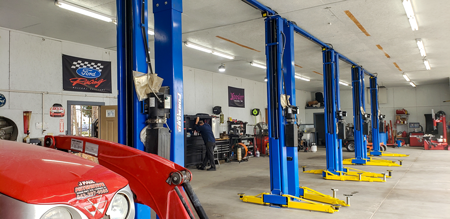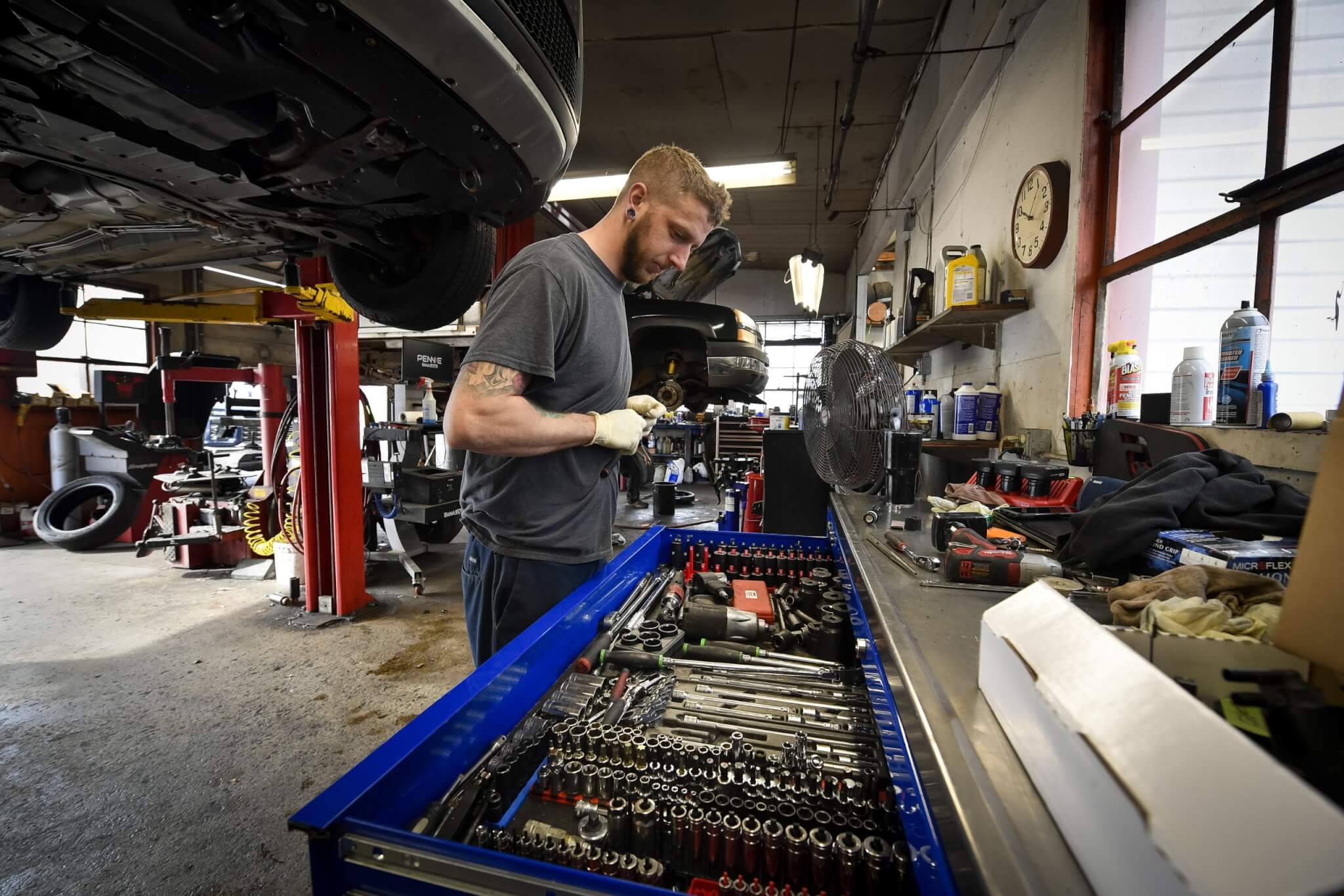All Categories
Featured

[/image]
Brakes are probably the most crucial security attribute of any kind of lorry. Without trusted brakes, even one of the most powerful automobile can end up being a risk when traveling. That's why normal brake evaluations are a need to for ensuring your car stops when you require it to. Complying with an appropriate brake evaluation routine can not only maintain you risk-free however also help you prevent expensive fixings. Right here's an in-depth overview on how to properly inspect your brakes and what to keep an eye out for.
- The Relevance of Routine Brake Inspections. Brakes undergo continuous deterioration with every use, whether you're driving at high speeds on the freeway or cruising with city streets. Gradually, brake pads, rotors, and other elements wear down, which can impact stopping efficiency. Without routine examinations, you may not discover the progressive decrease in performance till it's far too late.
Regular brake inspections permit you to capture problems early, ensuring that your brakes stay receptive, dependable, and secure. Prompt examinations can likewise conserve you cash by attending to minor concerns prior to they come to be costly repairs.
- Common Indicators That Your Brakes Need Attention. While regular brake examinations are very important, there are some indication you can look out for to understand when it's time to set up a check-up:
Squealing or Grinding Appears: Piercing squeaks or grinding sounds when applying the brakes are frequently signs that your brake pads are broken and require substitute. Vibration or Pulsation: If you feel vibrations in the guiding wheel or the brake pedal, it might show distorted rotors, which may require resurfacing or replacing. Soft or Spongy Brake Pedal: If the brake pedal really feels abnormally soft or spongy, there may be air in the brake lines or an issue with the master cylinder. Pulling to One Side: If your cars and truck pulls away while braking, this can be brought on by unequal brake pad wear or a problem with the brake fluid. Raised Quiting Range: If it takes longer to stop than typical, it might show that the brake pads are used, the fluid is reduced, or the rotors are damaged. If you discover any of these signs and symptoms, it's ideal to have your brakes checked quickly.

- Secret Parts Checked During Brake Inspections. Throughout a brake examination, a specialist will certainly check numerous vital components of the stopping system to ensure whatever is functioning correctly. Right here are the key parts entailed:
Brake Pads: The most usual factor for inadequate braking performance is damaged brake pads. Checking the density of the pads is a top priority throughout every inspection. Brake Rotors: Blades need to be smooth and free of grooves or fractures. Any kind of considerable damage to the rotors might cause endangered stopping efficiency and unequal pad wear. Brake Fluid: Reduced or polluted brake fluid can impair stopping efficiency. The technician will certainly inspect the liquid levels and top quality and change it if required. Brake Lines and Hose pipes: Brake lines must be devoid of leakages or cracks. Any type of damages to the lines can result in loss of brake liquid, resulting in brake failing. Brake Calipers: The calipers use stress to the brake pads. They should be inspected for indicators of wear or leaks to ensure they are operating correctly. Frequently inspecting these elements helps keep your brake system in peak condition, enabling you to quit your cars and truck safely and effectively.
- How Often Should You Have Your Brakes Evaluated? The general referral is to have your brakes evaluated a minimum of annually or every 12,000 miles, relying on your driving routines. Certain driving problems may call for even more regular assessments:
Hefty Web Traffic: If you usually drive in stop-and-go web traffic, your brake pads will certainly wear down faster. Hill Driving: Driving on high roads calls for even more constant stopping, which can create your brakes to put on a lot more promptly. Towing or Hauling Heavy Plenties: If you regularly carry hefty lots, your brakes will experience a lot more stress and anxiety and need more frequent inspections. If you see any of the indication discussed previously, do not wait on the following scheduled inspection-- have your brakes checked right away.
- The Consequences of Neglecting Brake Inspections. Disregarding routine brake assessments can lead to severe repercussions. A falling short brake system might result in minimized quiting power, which boosts your risk of crashes.
In the worst case, driving with harmed brakes can result in finish brake failure, putting you and other drivers in jeopardy. Regular brake examinations are a tiny investment that can conserve your life and protect against pricey repair work.
- Conclusion: Keep Safe with Regimen Brake Inspections. Brakes are not something you want to take possibilities with. A reputable stopping system is crucial for safe driving, and normal brake inspections are a simple means to make sure that your cars and truck stops when you require it most. By remaining on top of brake maintenance, watching for cautioning signs, and having your brakes evaluated at the suggested intervals, you'll secure both your automobile and your safety and security.
Don't wait until your brakes begin to fail-- schedule regular brake inspections and keep your car in optimum problem for several years to find.
Latest Posts
Explore Oil Changes & More: Complete Auto Care Solutions from Montclare Auto Repair
Explore Oil Changes & More: Complete Repair Options from Montclare Auto Repair
Check Out Affordable Auto Repairs with Montclare’s Limited-Time Service Specials
More
Latest Posts
Explore Oil Changes & More: Complete Auto Care Solutions from Montclare Auto Repair
Explore Oil Changes & More: Complete Repair Options from Montclare Auto Repair
Check Out Affordable Auto Repairs with Montclare’s Limited-Time Service Specials